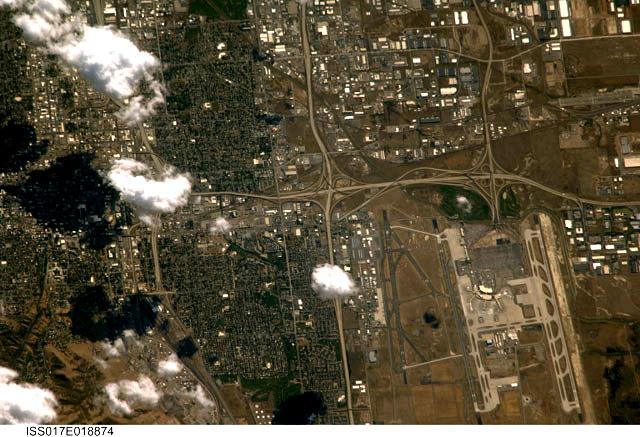Starr: The Bear River Project Threatens the Great Salt Lake
September 10, 2019
Many people think of the Great Salt Lake as shallow, smelly and somewhat useless body of water. With lackluster opportunities for fishing or boating — although some open water enthusiasts enjoy challenging swims within it – the lake seems more a source of endless brine flies and shrimp than anything else. Yet, the Great Salt Lake is incredibly important for the local environment, and its water level affects precipitation, migratory birds and even air quality.
The Bear River Water Development Project is a short-term answer to the Wasatch Front’s water needs, but it will ultimately lead to the further recession of Utah’s unique lake. The project should be rejected. The 500-mile tributary that supplies the majority of the water into the Great Salt Lake should be left alone to flow along its 7,500-mile basin, which is already heavily manipulated in the name of irrigation. Utah ought to better utilize its resources and limit its reach into one of the largest lakes (and its surrounding wetlands) west of the Mississippi.
With a population growing well over 5 million as early as 2060, there is no question about Utah’s need to find an adequate water supply for homes, businesses and people. The state should recognize how water and sanitation play into human rights. The UN General Assembly’s Resolution 64/292 frames the issue best, saying “water and sanitation are essential to the realization of all human rights.”
Not only do we have a responsibility to provide clean water for all, but we also have a duty to ensure that sustainability is front and center when developing, harvesting and consuming limited resources like water. What good can come out of creating water systems and projects for them to only fail when the remainder of the water is depleted or contaminated?
The Bear River project would divert the Bear River, which supplies 60% of the Great Salt Lake’s water, and most likely lead to its recession. If the Great Salt Lake recedes more than it already has, the environmental damage will not stop at the loss of an entire wetland ecosystem or destruction of nesting grounds for migratory birds. The colossal impacts from water diversion will reach farther than the marshy banks, which provide a protective habitat to over 250 far-flying species.
The Great Salt Lake’s declining water levels will touch the snowpack in the Wasatch Range, creating challenges for drinking water supplies, worsening the problem this proposed project is claiming to fix. Dust from an already drying lake bed has blown and touched one of the main suppliers of drinking water, our world-famous powder. The dust boosts the rate of spring runoff because its dark particles absorb sunlight, accelerating the melt.
While researchers have already begun studying this phenomenon in relation to dust storm events, the Bear River Project would surely escalate the situation. Snow melting earlier in the season will lead to greater losses to evaporation instead of supplying taps and hoses. A project heightening this effect is irresponsible and does the opposite of its stated purpose.
It can be easy to forget about the Great Salt Lake’s significance. It’s generally too salty for typical lake activities like wading and water skiing. In a state that houses natural arches and picturesque red rock buttes, the Great Salt Lake is among the more discounted natural features. However, there is still much amusement to be found. Sailing, moonlit biking and outstanding sunsets are a source of enjoyment along the salty waters. The lake’s connection to the valley’s utilities and role as a lifeline to wild creatures is important, but it’s also valuable to reflect on the human excitement brought by the water and views of nature. Utah has one of the most unique natural settings only a short trip from its main downtown, and it should remain that way.
Instead of developing a $1.5 billion diversion project, the Utah Division of Water Resources and the State Legislature should encourage conservation if fiscal responsibility, environmental wellbeing and maintaining the general welfare of all Utahns is truly the goal. While the Bear River Water Development Project is still a way out from rising and “providing” water to the valley, concerns must be voiced and heard. If a project must be canceled, it’s better to do so during earlier phases. With one of the highest per-person water usage in the country, there is much more we can and should be doing before a major development on the Bear River surfaces.








